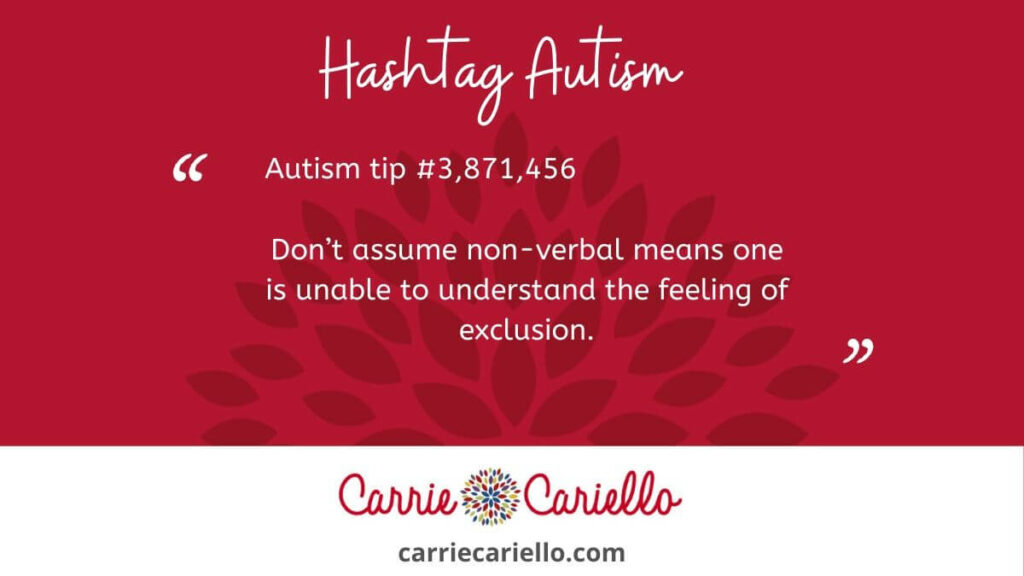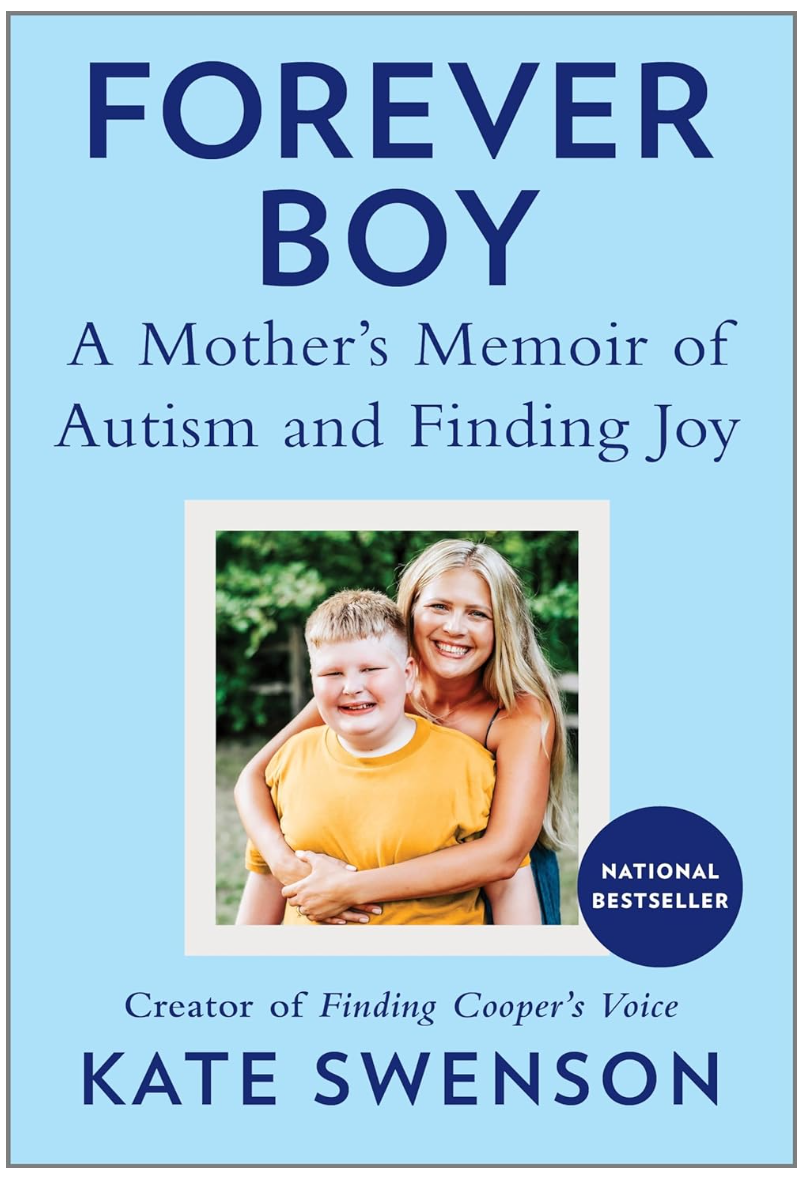Mom Asks ‘AITA’ For Not Making Daughter Invite Autistic Child To Her Party

Hi. My name is Carrie.
I have five kids, and my second son is diagnosed with autism. He is fifteen years old, and his name is Jack.
I write a lot about autism—how is affects me, and my family, and my son.
Yet I rarely write about current events or news stories, unless it’s about a complicated kid making a buzzer-beater to win a basketball game at the last minute—that’s the kind of inspiring thing I can get behind, you know?
Jack will never shoot a buzzer-beater during a game.
He hates basketball.
Anyway, the other day I came across this article.
I had to read it one over a couple of times, mostly because I didn’t know what AITA meant. I thought maybe it was a typo and the author’s name was really ANITA.
And that right there should give you an idea of where I stand with pop culture.
Apparently it means ‘Am I The A$$hole’, as in the author wrote this question into a social media platform to inquire if she made the right decision, or is, indeed, an a$$hole.
The thing is, I don’t know much about anything. But I do know if you have to question yourself or the cyberspace universe about whether or not you are an a$$hole, it’s quite possible you are.
Anyway, from this point forward I will refer to the author as Anita instead of AITA because I think it sounds nicer.
And for those of you who like a fast re-cap, the black-white-facts-without-any-grey of the matter are: Anita’s daughter is in second grade. She was having a pool party to celebrate her birthday. It was a drop-your-kid off kind of party.
Anita invited the entire class with the exception of one boy with non-verbal autism.
Anita wants to know if this was wrong.
Oh, Anita! Anita, Anita. You are making my head hurt.
And this is why I don’t like writing about current events! It’s too stressful.
Listen, I never expected people to include my son because he had autism. I realize he is not always easy to connect with, and has behaviors that at times appear odd.
But if you are going to invite the entire class to a party, and specifically exclude one boy because he is diagnosed and goes to another program for part of the day, well, this does not make me feel so good.
What if he had diabetes? Would you leave him out because of all the sugary treats typically found at a birthday party and his insulin might spike up sky high?
Or how about if he had a broken leg and used crutches and couldn’t swim in the pool?
I guess what I’m asking is, should request you copies of every child’s health and academic records so you can profile who would be most suitable to celebrate for the afternoon?
Or is it just because kids like my son—kids diagnosed with Autism Spectrum Disorder—who wear their diagnosis on their sleeve, so to speak?
Here is the thing. When I read stuff like this, I cannot allow myself to wallow in anger and despair. It’s not helpful—for me or Jack.
The only thing I can do is try to come up with a few ideas to make this whole autism thing a little easier for everyone.
If you are planning a party and you don’t know if you should include a child who seems high-maintenance, or unmanageable, or has a diagnosis with which you are unfamiliar, here are some things you might try.
1. Trust us.
I would never put Jack, or you, in a situation that is dangerous, or unsafe, or weird, or uncomfortable. Maybe I’d bring him for a little while and stay myself, or just pop over so he could drop off a gift.
And if Jack chooses a gift, you should know it’s going to be great. He puts a lot of time and research into his gift-buying. For my birthday he gave me the best popcorn make you have ever seen. It makes the best popcorn—not too soggy but not burnt either. We use it every night.
2. Reach out.
Reach out to the parents. Something as simple as a text or a phone call feels like you are building a bridge to our side of the water.
Hi Mrs. Cariello! We would like to invite Jack to the party. How can we make this successful for everyone?
3. Please, put yourself in our shoes.
No, no. That’s not right.
Put yourself in his shoes.
Imagine you are an 8-year boy whose words stick upon his tongue like so many bees trapped in honey.
Imagine you have to leave the class throughout the day for special services and instruction and mandatory quiet time.
Imagine every single day you watch the world glide by from the gilded golden cage in which you sit—a rare, tropical bird who is largely misunderstood, and lonely.
4. Don’t assume.
Don’t assume non-verbal means unable to understand that everyone in class went to a party while I stayed home.
Don’t assume an inability to experience feelings of loneliness, and embarrassment, and shame.
Don’t assume people with autism aren’t interesting, or fun, or intelligent.
Jack loves people.
He loves to swim.
His autism is not his fault.
It’s not his fault his brain is wired a little differently and he jumps around sometimes and the bee-words move slowly through their stickiness.
So why is he punished again and again?
Give him a chance. Get to know him. Talk to him.
I think you’ll find yourself surprised by just how much you enjoy him.
All we have is each other.

Written by, Carrie Cariello
Carrie Cariello is the author of What Color Is Monday, How Autism Changed One Family for the Better, and Someone I’m With Has Autism. She lives in Southern New Hampshire with her husband, Joe, and their five children.
Carrie is a contributor to the Huffington Post, TODAY Parents, the TODAY Show, Parents.com. She has been interviewed by NBC Nightly News, and also has a TEDx talk.
She speaks regularly about autism, marriage, and motherhood, and writes a weekly blog at www.carriecariello.com. One of her essays, “I Know What Causes Autism,” was featured as one of the Huffington Post’s best of 2015, and her piece, “I Know Why He Has Autism,” was named one of the top blog posts of 2017 by the TODAY Show.
Interested in writing for Finding Cooper’s Voice? LEARN MORE
Finding Cooper’s Voice is a safe, humorous, caring and honest place where you can celebrate the unique challenges of parenting a special needs child. Because you’re never alone in the struggles you face. And once you find your people, your allies, your village….all the challenges and struggles will seem just a little bit easier. Welcome to our journey. You can also follow us on Facebook, subscribe for exclusive videos, and subscribe to our newsletter.

